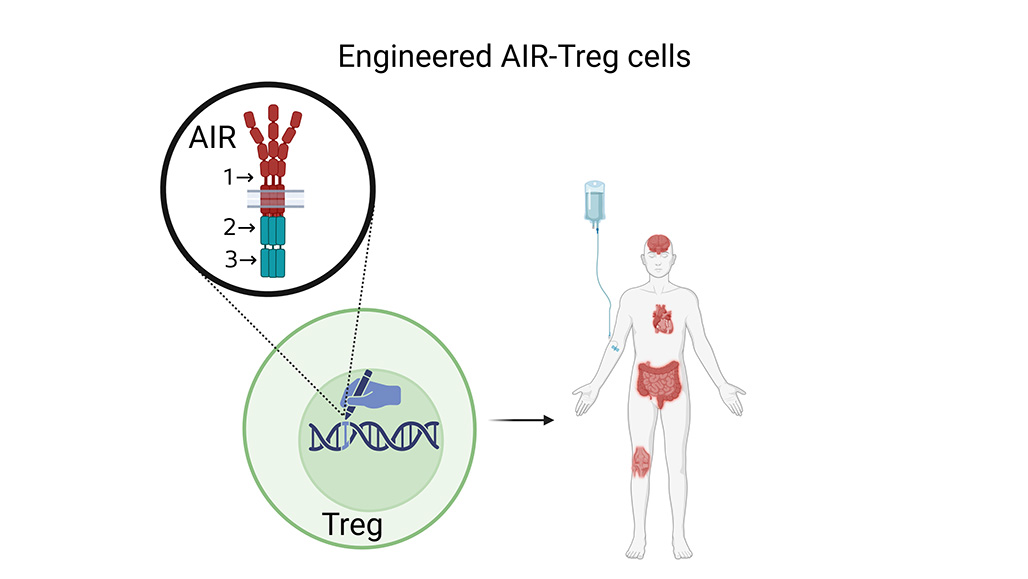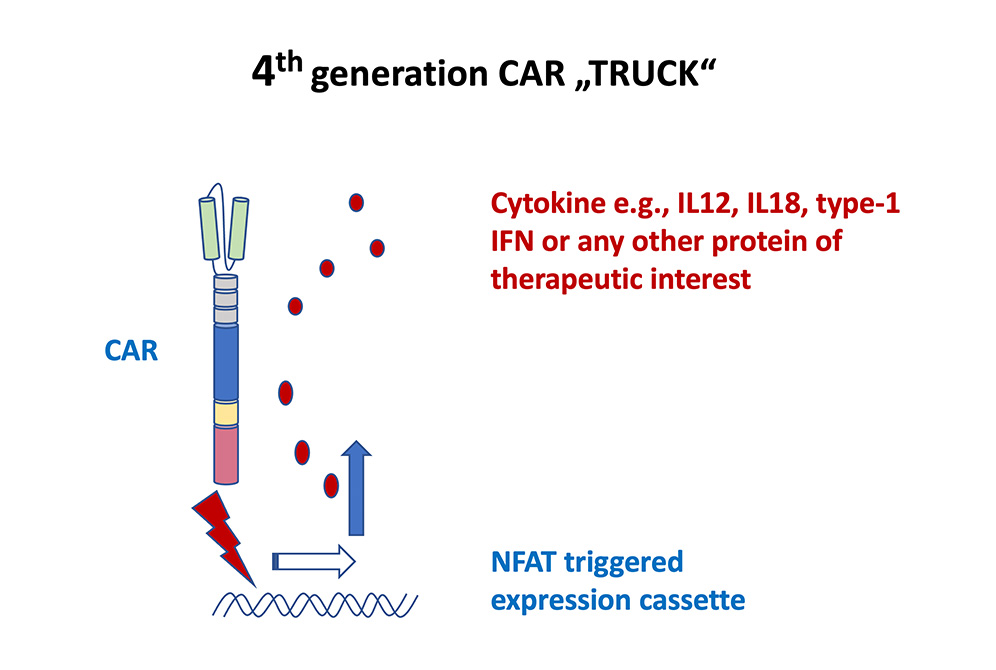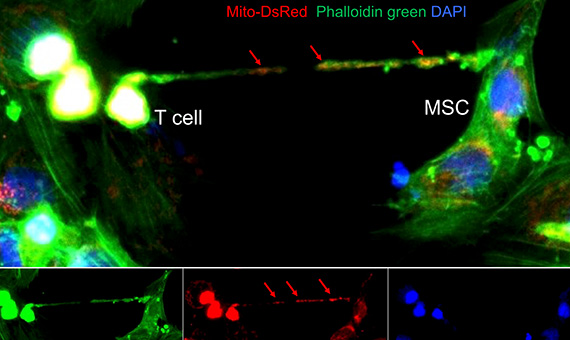Featured Projects
The Leibniz Institute for Immunotherapy has four different Research Divisions that encompass numerous projects and initiatives. Below we shine the spotlight on three of them: artificial immune receptors (AIRs), TRUCK T-cell engineering, and boosting T-cell memory.
Explore our special projects

AIR – Biosensors for inflammation
Scientists from the Division of Immunology have developed new types of synthetic biosensors known as artificial immune receptors (AIRs), which can be used to reprogram Tregs. These AIR receptors equip Tregs with a novel inflammation-sensoring mechanism and translate this environmental information into a dependent TCR-activation program. Learn More

TRUCKs – CAR T cells engineered to act as 'living factories'
The Leibniz Institute aims to use CAR T cells not simply as ‘living drugs’ in themselves, but also as ‘living factories’ producing a transgenic protein which delivers a therapeutically active agent to the organ of interest. he T cells are engineered with a CAR and an inducible expression cassette to produce a therapeutic protein which is triggered by CAR signaling. Learn More

Boosting T cell memory by mitochondrial transfer
Immunological memory describes the immune system’s ability to remember a pathogen, and respond rapidly and more vigorously to it upon subsequent encounters. This essential immune system function is delivered by B and T cells. Mesenchymal stromal cells (MSCs) in the bone marrow and peripheral lymphoid organs are known to promote T-cell memory by organizing pro-survival niches—but the precise mechanisms by which they support T-cell longevity are still not clearly understood. Learn More